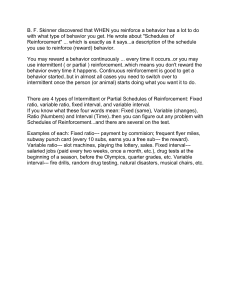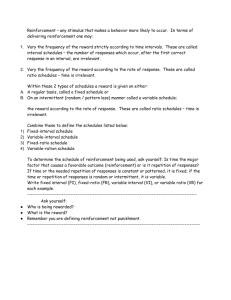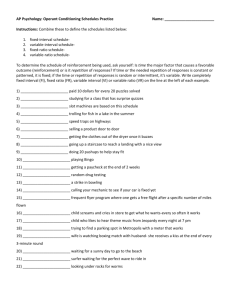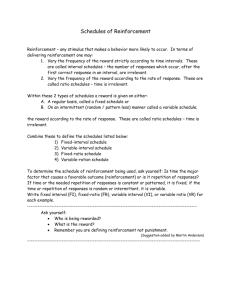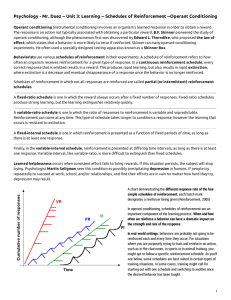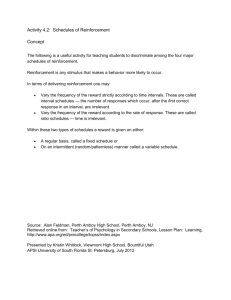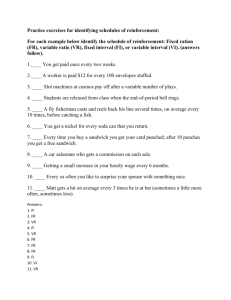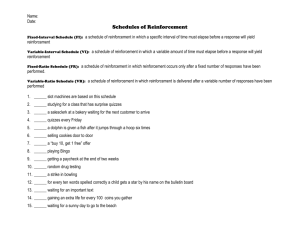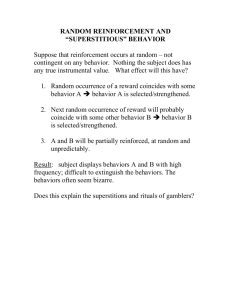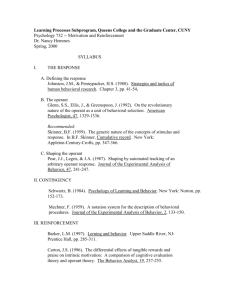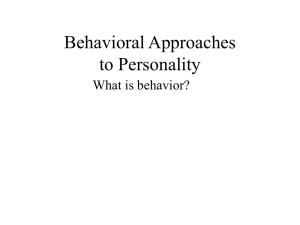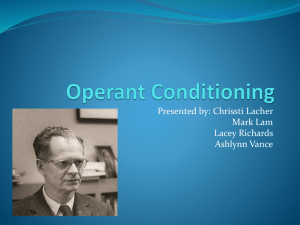PSYCH-UNIT-3-LEARNING-SCH-REINFORCEMENT
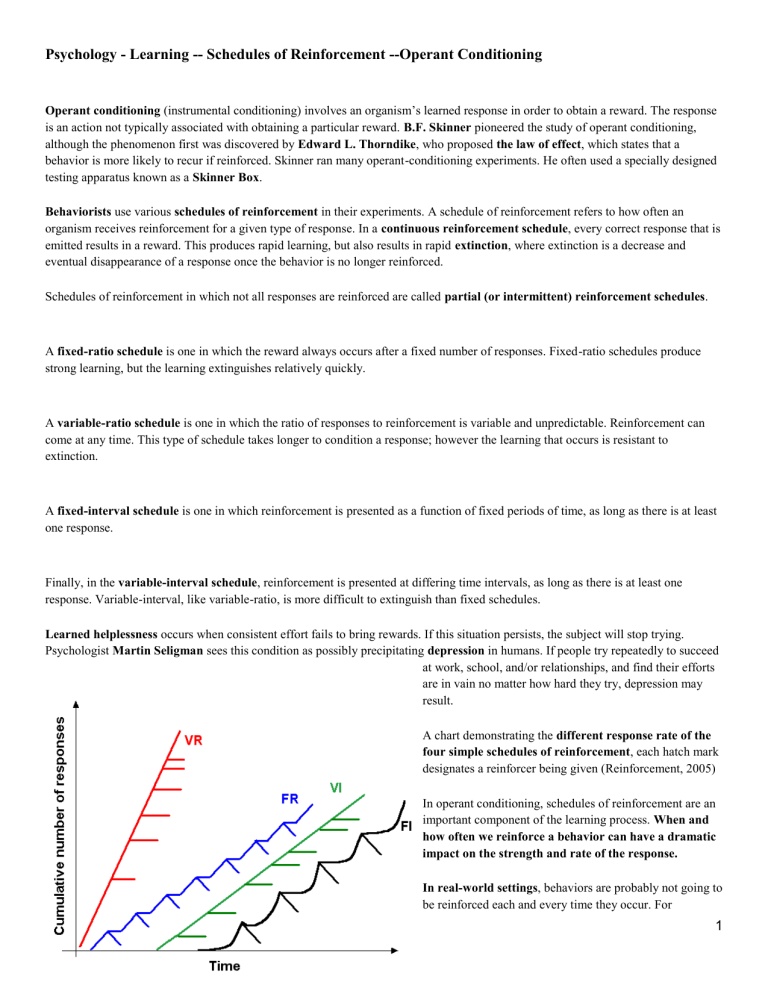
Psychology - Learning -- Schedules of Reinforcement --Operant Conditioning
Operant conditioning (instrumental conditioning) involves an organism’s learned response in order to obtain a reward. The response is an action not typically associated with obtaining a particular reward. B.F. Skinner pioneered the study of operant conditioning, although the phenomenon first was discovered by Edward L. Thorndike , who proposed the law of effect , which states that a behavior is more likely to recur if reinforced. Skinner ran many operant-conditioning experiments. He often used a specially designed testing apparatus known as a Skinner Box .
Behaviorists use various schedules of reinforcement in their experiments. A schedule of reinforcement refers to how often an organism receives reinforcement for a given type of response. In a continuous reinforcement schedule , every correct response that is emitted results in a reward. This produces rapid learning, but also results in rapid extinction , where extinction is a decrease and eventual disappearance of a response once the behavior is no longer reinforced.
Schedules of reinforcement in which not all responses are reinforced are called partial (or intermittent) reinforcement schedules .
A fixed-ratio schedule is one in which the reward always occurs after a fixed number of responses. Fixed-ratio schedules produce strong learning, but the learning extinguishes relatively quickly.
A variable-ratio schedule is one in which the ratio of responses to reinforcement is variable and unpredictable. Reinforcement can come at any time. This type of schedule takes longer to condition a response; however the learning that occurs is resistant to extinction.
A fixed-interval schedule is one in which reinforcement is presented as a function of fixed periods of time, as long as there is at least one response.
Finally, in the variable-interval schedule , reinforcement is presented at differing time intervals, as long as there is at least one response. Variable-interval, like variable-ratio, is more difficult to extinguish than fixed schedules.
Learned helplessness occurs when consistent effort fails to bring rewards. If this situation persists, the subject will stop trying.
Psychologist Martin Seligman sees this condition as possibly precipitating depression in humans. If people try repeatedly to succeed at work, school, and/or relationships, and find their efforts are in vain no matter how hard they try, depression may result.
A chart demonstrating the different response rate of the four simple schedules of reinforcement , each hatch mark designates a reinforcer being given (Reinforcement, 2005)
In operant conditioning, schedules of reinforcement are an important component of the learning process. When and how often we reinforce a behavior can have a dramatic impact on the strength and rate of the response.
In real-world settings , behaviors are probably not going to be reinforced each and every time they occur. For
1
situations where you are purposely trying to train and reinforce an action, such as in the classroom, in sports or in animal training, you might opt to follow a specific reinforcement schedule. As you'll see below, some schedules are best suited to certain types of training situations. In some cases, training might call for starting out with one schedule and switching to another once the desired behavior has been taught.
EXAMPLES: F or V R or I
1 Getting a paycheck every other week
2 Pop quizzes
3 Slot machines at gambling casinos
4 A factory worker is paid on piece work
5 Fly fishing: casting & reeling back several times before catching a fish
6 Looking at your watch during a lecture until the end of the 90 minute period.
7 A salesperson who is paid on commission (% of sales)
8 Calling a friend & getting busy signal because he or she is frequently on the phone
9 Signaling with your thumb while hitchhiking
10 Frequent flyer program: reward after X amount of miles
11 Buying lottery tickets
12 A person refrains from drugs due to random drug testing
13 Checking the refrigerator to see if JELL-O is ready
14 Watching for shooting stars
Hints:
Fixed = specific
Variable = unpredictable
Ratio = number
Interval = time period
Fixed Ratio = specified number of responses
Variable Ratio = unpredictable number of responses
Fixed Interval = specified time period
Variable Interval = unpredictable time period
2
